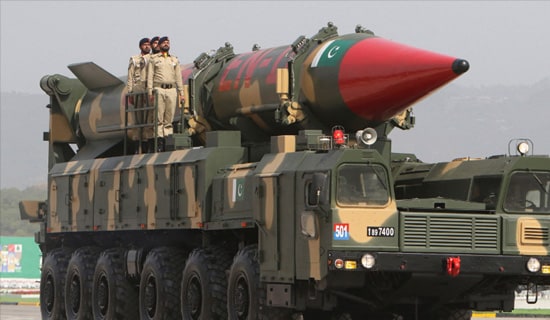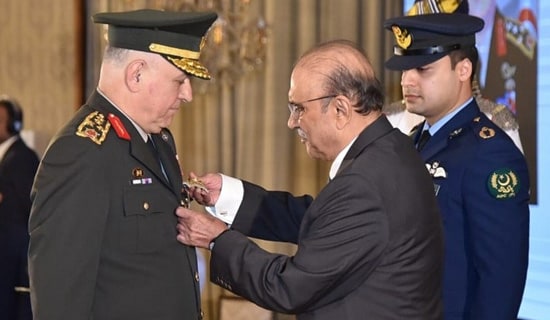Jebran Tueini, a representative in the Lebanese parliament and editor of the Lebanese daily Al-Nahar, published a scathing attack on Hizbullah accusing Hizbullah of serving the interests of Syria and Iran and of acting like an independent country, ignoring the will of the Lebanese people. Tueini also advocated deploying the Lebanese army on the Israeli border and accused Syria of holding Lebanon back from deploying its forces on the southern border, in order to keep the front active and thus reap political gains.
Tueini's article came in response to a statement made by Hizbullah Deputy Secretary-General Na'im Qasem that Hizbullah will not give up its arms even if Israel were to withdraw from the Shab'a Farms: "The resistance is not merely another step towards the liberation of the Shab'a Farms, since the magnitude of the dangers that we in Lebanon sense from the Israelis proves that there is a pressing need to retain the resistance so as to protect Lebanon." [1] The following are excerpts from Tueini's article: [2]
Syria and Iran are Trying to Turn Lebanon into an Arena for All of the Regional and International Struggles
"The citizens feel that things aren't under control… The new government needs to understand that it is no longer an apparatus for carrying out the dictates of Syria. It is a body that has reclaimed its function – to safeguard [Lebanon's] sovereignty and independence, and to remind, for those who have forgotten, that Lebanon is not helpless and doesn't need any form of protectorate. Thus, the government should act in a transparent manner and should adopt a clear policy, without being afraid of facing challenges… and should act to defend the rights of the homeland and the citizens...
"The crisis on the Lebanese-Syria borders is a part of Damascus' [ongoing] blackmailing of Beirut... This is in addition to the current crisis between Syria and Iran on the one hand and the U.S. on the other. In this context, Syria and Iran are trying to turn Lebanon into an arena of this crisis, in addition to the Iraqi arena.
"Thus, on the Lebanon-Syria border, at times 'cold winds' blow, and at other times 'hot winds,' depending on what is going on in Iraq, and on the nuclear crisis front between the West and Iran.
"There is no doubt that the renewed attempt to turn Lebanon into an arena for all types of regional and international struggles constitutes a peril to the country. Likewise, it serves Israel's interests, as Israel is the primary beneficiary of the [attempt] to harm the establishment of a strong Lebanon..."
"It is Syria that Has Held Lebanon Back from Deploying on the Border with Israel"
"Thus we come to the question of the deployment of the [Lebanese] army on the border with the Israeli enemy, not just as an implementation of [UN Security Council] Resolution 1614, but also as an exercise of the natural function of the army – defending the land and the people, for it is not natural that an army refrain from deploying on its country's borders.
"Therefore, Siniora's government needs to take a clear stand on this question, especially since the deployment of the army has become [both] a Lebanese and an international demand. Didn't the government take upon itself the obligation to implement and honor UN resolutions? Then it must translate this obligation [into deeds], unless it wants Lebanon to lose its international backing, in addition to losing the confidence of the Lebanese themselves.
SUPPORT OUR WORK

"We won't be betraying any secrets if we say that it is Syria that has held Lebanon back from deploying its army on the border with Israel, in order to keep the front active, and use it to pressure the U.S., to make gains for Syria in relations with Washington, and in order to signal to Israel that there can be no negotiations [between Lebanon and] Israel independent of Syria.
"Now, when the Syrian protectorate over Lebanon has fallen, the Lebanese government must defend Lebanese interests and take full responsibility for the defense of the land and the people. First of all, it must take control of the security issue everywhere on Lebanese soil, and especially on the border with the Israeli enemy. This is not in order to defend the Hebrew state – as President Emil Lahoud has claimed, apparently in accordance with the wishes of the Syrians – but rather in order to defend Lebanon's security and the integrity of its lands... There is not a single Lebanese who puts the interests of his country before any other interest… who [would] oppose the deployment of his own country's army along the border with the enemy…"
"Shouldn't [Hizbullah's] Priorities Be Lebanon's National Security, Not Syrian and Iranian Security?"
According to Tueini, Deputy Secretary-General of Hizbullah Sheikh Na'im Qasem's statement opposing the deployment of the army in the south is "ridiculous!"
"If the party [i.e. Hizbullah] believes that it is acting in conjunction with the army, and that the role of the resistance is to support the army, then why is it opposed to the deployment of the army on the border? Why is it opposed to the army being the primary, sole, and chief [body] responsible for security, which will implement a military program and strategy to be set by the centralized Lebanese government? Aren't these the fundamental principles in democratic countries, at whose head stand centralized governments which are under the supervision of freely elected legislative authorities?
"We ask again and again that Sheikh Na'im Qasem clarify what he said about retaining the arms of the resistance even if Israel were to withdraw from the Shab'a Farms!.. Perhaps it is for this reason that Syrian Prime Minister [Muhammad Naji 'Atari] said that the question of Hizbullah's arms is tied directly to the question of Syria's national security. [3]
"...Does the party [i.e. Hizbullah] see itself as the ones responsible for Lebanon's security and does it act according to a clear Lebanese policy set by the centralized government, or does it [see itself] tied to Syrian the policy and perhaps to the Iranian policy, which it implements independently of the decisions of Lebanon's government and the will of the Lebanese people? Shouldn't [Hizbullah's] priorities be given to Lebanon's national security, and not to Syrian and Iranian security?
Hizbullah Must Act as a Partner in Lebanese Political Life, and Not as Though it is a State in Itself
"This leads to an even clearer question. What is the nature of the [Hizbullah's] relations with Syria and Iran? Are the relations between them subject to the basic norms and principles [regulating relations] between sovereign and independent countries?...Or are these relations that skip over these fundamental norms and principles and act directly with political, religious, and ideological [domestic] groups…? In other words, does Hizbullah see itself – in its relations with Syria and Iran and its contacts with them – as independent of the Lebanese government's policies and the will of the Lebanese people, or is it subject to them?...
"The preservation of [the principle] of resistance was kept when all of the Lebanese said that the question of Hizbullah's arms is a domestic Lebanese affair that needs to be discussed at a round table, far from foreign interventions and regional and international political blackmail.
"This stand is still valid and it will not be changed, and it is forbidden to change it. But by the same token, [Hizbullah] must act as a partner in Lebanese political life, and not as an independent group that acts and carries on negotiations independently of state policies, as though it is a state in itself. The party needs to understand that it is part of the [Lebanese] dominion and government, and not a dominion and government within a dominion and government!
"For these reasons, it is imperative that the Siniora government take full responsibility and make all necessary decisions to implement its declared [policy], in order to defend the rights of the country and its citizens – all of the citizens – to live in honor, and in particular in order to retain the international support that Lebanon has merited, and to assure that Lebanon won't lose its international legitimacy and backing."




